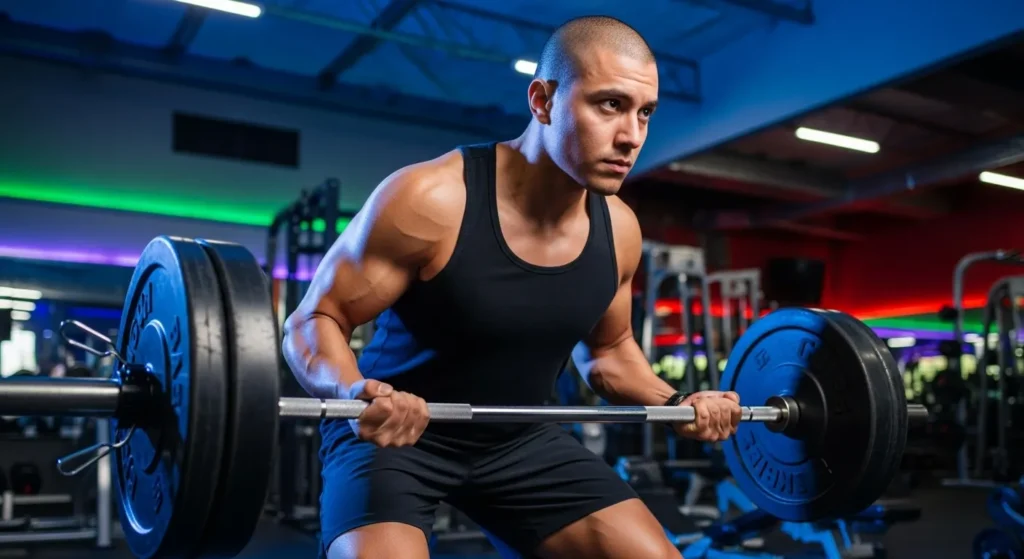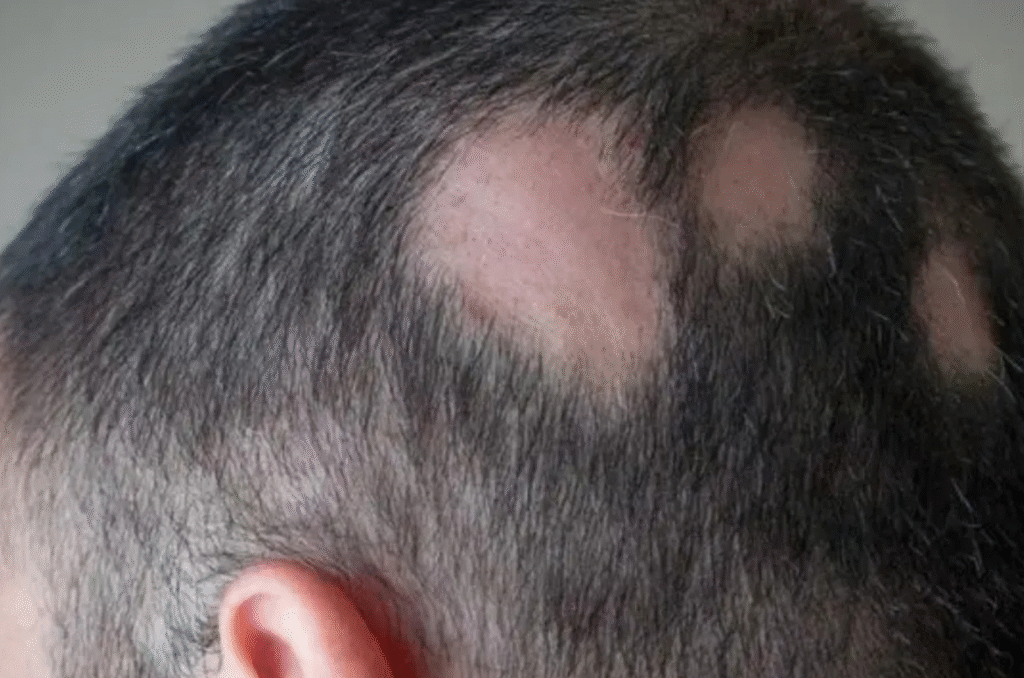Concerned that your weight lifting routine might be the reason behind your thinning hair? Does weight lifting cause hair loss is a common question among gym-goers and fitness enthusiasts.
In this blog, we’ll explore the scientific connection between strength training and hair loss, uncover the role of hormones and supplements, and offer expert-backed advice to protect your hair without compromising your gains. Whether you’re lifting casually or training intensely, this guide provides clarity, truth, and actionable solutions.
Can Weight Lifting Lead to Hair Loss?

Understanding the Concern: Why Men Worry About Hair Loss and Gym Habits
Hair loss is a distressing experience for many men, especially those in their 20s and 30s—ironically, the same age group often committed to fitness. The fear that their workout routines may accelerate hair loss is not unfounded, but it’s often misunderstood.
Hair Loss vs. Hair Shedding: What’s the Difference?
Before diving into causes, it’s important to distinguish:
- Hair shedding is temporary and part of the normal hair cycle.
- Hair loss (especially androgenic alopecia) involves progressive thinning and miniaturization of follicles, often influenced by genetics and hormones.
Correlation vs. Causation: Does Lifting Weights Directly Cause Hair Loss?
The answer: Not directly. Lifting weights does not inherently cause hair loss, but it can influence hormonal levels and lifestyle factors that may contribute to it, especially if you’re genetically predisposed.
Scientific Explanation: How Weight Lifting May Be Linked to Hair Loss
Testosterone, DHT, and Androgenic Alopecia
Weight training increases testosterone. This hormone can be converted into DHT (dihydrotestosterone), a major factor in male pattern baldness. In genetically susceptible individuals, DHT binds to hair follicles, shrinking them over time.
Does Lifting Increase DHT Levels? What Studies Suggest
- Some studies suggest intense resistance training slightly raises free testosterone and DHT levels.
- However, the effect is typically temporary and modest, unless combined with external factors like supplements or steroids.
Muscle-Building Supplements and Their Impact on Hair
Creatine is frequently mentioned in forums and studies:
- A 2009 study found creatine increased DHT levels by up to 56% in rugby players.
- Though not conclusive, this may explain anecdotal reports of hair thinning.
Whey Protein:
- Some commercial whey proteins are processed with hormonal additives or growth factors, which may indirectly influence DHT levels.
Anabolic Steroids:
- These pose the highest risk. Steroids drastically raise androgen levels, triggering rapid-onset hair loss in predisposed users.
Indirect Triggers: Other Gym-Related Causes of Hair Loss
Stress and Intense Physical Strain on the Body
Overtraining, lack of rest, and high physical stress can lead to telogen effluvium, a temporary condition where hair prematurely enters the shedding phase.
Poor Diet and Nutritional Deficiencies
Hair health depends on:
- Protein
- Zinc
- Iron
- Biotin
Gym-focused diets low in fat or micronutrients can unintentionally deprive hair follicles of essential fuel.
Dehydration and Scalp Health
Failing to hydrate properly, especially after sweating heavily, may lead to:
- Dry scalp
- Inflammation
- Clogged hair follicles
Overtraining and Cortisol Levels
Chronically elevated cortisol (stress hormone) is linked to hair loss. Excessive training without recovery elevates cortisol, which can suppress hair growth.
Gym Goers at Higher Risk: Who Should Be Cautious?
Genetically Predisposed Individuals (Androgenic Alopecia Risk)
If you have a family history of baldness, your hair follicles are more sensitive to DHT. In this case, even slight increases in testosterone/DHT may impact hair.
Young Men on High-Protein/Creatine Regimens
Over-reliance on supplements without monitoring health markers or hormone levels may be risky.
Steroid Users and Bodybuilders
This group experiences the most accelerated hair loss, often seeing results within months of starting anabolic steroids.
How to Prevent Hair Loss While Lifting Weights
Diet and Scalp Nutrition Tips
- Include iron-rich foods (like spinach and lentils)
- Prioritize omega-3 fatty acids and vitamin D
- Add biotin, zinc, and vitamin E supplements if deficient
Safe Supplementation Advice
- Use pure creatine monohydrate without fillers
- Choose clean whey protein with no hormonal additives
- Avoid performance-enhancing drugs unless medically prescribed
Stress Management and Sleep for Hair Health
- Aim for 7–8 hours of quality sleep
- Incorporate rest days
- Use meditation or yoga to balance cortisol
When to See a Trichologist or Hair Specialist
If you notice:
- Receding hairline or crown thinning
- Excessive hair in the shower
- Hair miniaturization
Then seek professional help. Early intervention can save follicles.

FAQs About Weight Lifting and Hair Loss
Can lifting weights cause hair loss in women?
Rarely. Women don’t produce DHT in the same volume, but intense training and hormone imbalance can still lead to hair issues.
Does sweating in the gym affect hair health?
Not directly. But failing to cleanse sweat and oil buildup can clog follicles.
Is cardio better than weight lifting for hair?
Not necessarily. Both can be part of a healthy lifestyle if balanced with nutrition and recovery.
Should I stop going to the gym if I’m losing hair?
No. Modify your routine, check your diet and supplements, and consult a hair specialist.
Do protein shakes cause hair fall?
Not inherently. But some may contain added hormones that influence hair health.
Should You Be Worried?
Lifting weights does not directly cause hair loss. But when combined with genetics, high-DHT levels, or risky supplement use, it can contribute. By lifting smart, monitoring hormone levels, and nourishing your body, you can stay strong without losing your hair.
Worried your fitness routine might be affecting your hair? Don’t let uncertainty take the lead.
Book a free consultation with Dr. Rana Irfan, Pakistan’s leading ABHRS and ISHRS-certified hair restoration expert, and get personalized advice tailored to your gym lifestyle.
